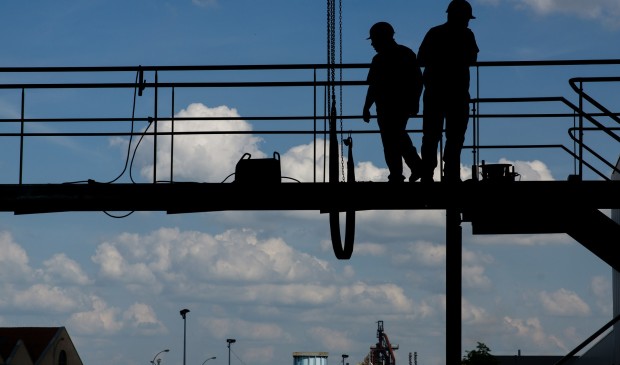Contractors give input on disparity study and ordinance
Wednesday, March 16, 2016 by
Eva Ruth Moravec All Austin-area women- and minority-owned businesses are at a disadvantage when it comes to obtaining city contracts, a recent study shows.
But while African-American entrepreneurs have often been at the forefront of efforts to push for equity in contracting, some say disparities affecting this demographic have gotten worse rather than better.
“The story hasn’t changed all that much from when these analyses began 25 years ago,” said Cloteal Haynes of the Austin Area Black Contractors Association at a recent outreach session on the disparity study and on potential changes to the city’s minority- and women-owned business ordinance.
City Council adopted a 750-page report on the two-year National Economic Research Associates study last month. Analyzing a plethora of data, NERA also delved into five years’ worth of city contracts and determined that from 2008 to 2013, businesses owned by minorities or women were awarded $876 million in contracts, or 21 percent of the total amount.
Overall, when a city contract included goals for what percentage of subcontracts should go to businesses not owned by white males, more women- and minority-owned companies won the bids.
According to the data, however, Haynes said that while goals seem to benefit other minority groups, African-American-owned businesses are unaffected.
“This has to stop,” Haynes said.
The study’s principal investigator, Jon Wainwright, said during the outreach session that in 1987, African-Americans represented about 14 percent of the population, 3 percent of the business population and 1 percent of business receipts. Twenty years later, African-Americans owned 5 percent of businesses, but receipts had been cut in half, he said.
“While there were more African-American firms out there, they were splitting an ever-increasingly small piece of the pie,” he said. “I look forward to the day when those results change.”
Carol Hadnot, also of the Austin Area Black Contractors Association, said she has known several firms that falsely claim to be owned by a woman or minority. Despite making complaints, Hadnot said, “nothing is done, and we are the ones that are left at the bottom of the ladder.”
Wainwright said he sees news stories about companies attempting to defraud women- and minority-owned business programs at least once a week.
“They threaten the integrity of the entire program,” Wainwright said. “The city needs to always be mindful of and vigilant of that.”
About 10 other people – many of whom were business owners – spoke during the session, the first of its kind to solicit input from the contractor community on the ordinance. The study is required to legally justify the need for the ordinance; the ordinance is set to be revised in June.
Aletta Banks, executive director of the Asian Contractors Association, commended NERA on the study and on the presentation summarizing its findings, calling it “a huge undertaking.”
But, she added, the city should also look at how many contractors are able to participate in the women- and minority-owned business program, not just how much they represent in dollars.
“Are these contracts going to just a select few?” Banks asked. “Sometimes, you grow familiar with doing business with certain people.”
Wainwright said that particular data wasn’t legally required. But it – and other issues like gentrification and income segregation – will be analyzed by the future chief equity officer. At a Health and Human Services Commission meeting last week, city staff said the person who fills that unique position will help tailor policies and practices to meet Austin’s specific characteristics.
The chief equity officer position will be advertised in April and filled in June, according to city staff.
Photo by Martinelle made available through a Creative Commons license.
You're a community leader
And we’re honored you look to us for serious, in-depth news. You know a strong community needs local and dedicated watchdog reporting. We’re here for you and that won’t change. Now will you take the powerful next step and support our nonprofit news organization?









